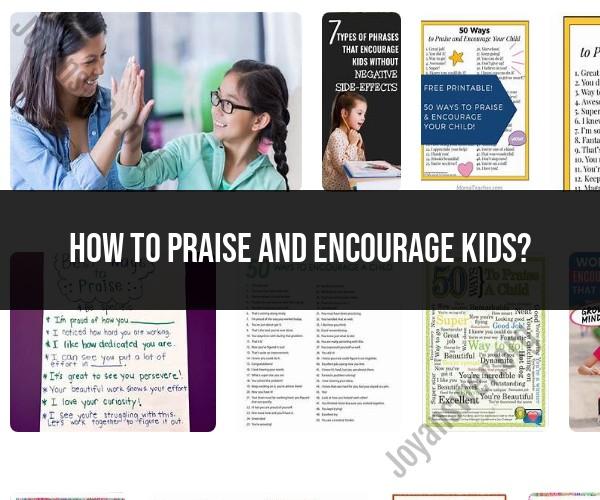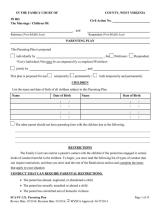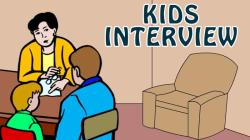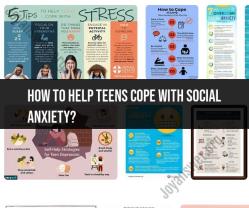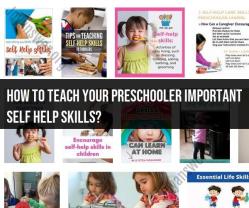How to praise and encourage kids?
Praising and encouraging kids effectively is essential for their development, self-esteem, and motivation. Here are some parenting tips on how to provide praise and encouragement to children in a constructive and positive manner:
Be Specific and Sincere:
- Instead of generic praise like "Good job," be specific about what you're praising. For example, say, "I'm proud of how you worked hard on your math homework."
- Be sincere and genuine in your praise. Children can often tell when praise is insincere or exaggerated.
Use Descriptive Praise:
- Describe the behavior or effort you're praising. For instance, "You did a great job sharing your toys with your friend" or "I appreciate how you tried your best on that project."
Focus on Effort and Progress:
- Encourage a growth mindset by praising the effort and hard work your child puts into tasks. Acknowledge their progress and improvements, even if they haven't achieved a specific outcome.
Avoid Overpraising:
- Be mindful of not overpraising or offering excessive rewards for every small accomplishment. Overpraise can lead to a sense of entitlement or external motivation rather than intrinsic motivation.
Promote Independence:
- Encourage independence and problem-solving by acknowledging their autonomy. Say things like, "You figured that out on your own; I'm impressed!"
Celebrate Small Wins:
- Recognize and celebrate even small achievements. This helps build a sense of accomplishment and self-confidence.
Be Patient with Mistakes:
- Teach your child that making mistakes is a part of learning and growing. Instead of criticizing, offer constructive feedback and encouragement to try again.
Use Non-Verbal Cues:
- Non-verbal cues like a smile, a thumbs-up, or a high-five can also convey praise and encouragement effectively.
Avoid Comparison:
- Avoid comparing your child to others, as this can lead to feelings of inadequacy. Focus on their unique strengths and accomplishments.
Encourage Self-Evaluation:
- Ask open-ended questions that encourage self-evaluation and self-reflection, such as "How do you think you did?" or "What could you do differently next time?"
Create a Supportive Environment:
- Foster a home environment where children feel safe to take risks and know that you are there to support them, regardless of the outcome.
Model Positive Self-Talk:
- Demonstrate positive self-talk and self-encouragement in your own life. Children often learn from their parents' behaviors and attitudes.
Set Realistic Expectations:
- Set age-appropriate and realistic expectations for your child's abilities and accomplishments. This can reduce stress and pressure.
Remember that effective praise and encouragement help children develop a healthy self-esteem and a positive attitude towards learning and growth. It's about fostering a supportive and loving environment that motivates them to strive for their best while understanding that effort and progress are valuable.
The Art of Praise: Boosting Children's Self-Esteem and Motivation
Praise is a powerful tool that can be used to boost children's self-esteem and motivation. When children are praised for their efforts and accomplishments, they feel good about themselves and are more likely to continue trying their best.
However, it is important to praise children in a way that is effective and meaningful. Here are a few tips:
- Be specific. Instead of saying "good job," praise a specific aspect of the child's performance or effort. For example, you could say "I like the way you used different colors in your drawing" or "I'm proud of you for persisting with that difficult math problem."
- Be sincere. Children can tell when you are being sincere, so make sure your praise is genuine.
- Be timely. Praise children as soon as they do something praiseworthy. This will help them to understand what behavior is expected and appreciated.
- Be specific. Avoid comparing children to others. Instead, focus on their individual progress and accomplishments.
- Be balanced. Don't overdo the praise, as children can become complacent if they feel like they are always being praised.
Effective Ways to Encourage and Support Children's Positive Behavior
In addition to praise, there are a number of other ways to encourage and support children's positive behavior. Here are a few tips:
- Set clear expectations. Children need to know what behavior is expected of them. Make sure to communicate your expectations clearly and consistently.
- Model positive behavior. Children learn by watching the adults in their lives. Be a good role model by demonstrating the positive behaviors that you want to see in your children.
- Provide positive reinforcement. When children behave in a positive way, provide them with positive reinforcement, such as praise, attention, or small rewards.
- Be consistent. It is important to be consistent with your discipline and expectations. This will help children to understand what behavior is acceptable and unacceptable.
Building Healthy Self-Esteem in Kids Through Praise and Encouragement
Praise and encouragement can help to build healthy self-esteem in children. When children feel good about themselves, they are more likely to try new things, take risks, and persevere in the face of challenges.
Here are a few tips for using praise and encouragement to build healthy self-esteem in children:
- Focus on the child's effort and progress, rather than their accomplishments alone. This will help children to develop a growth mindset, where they believe that they can improve their abilities with effort.
- Praise the child's character and values, as well as their specific achievements. This will help children to develop a strong sense of self-worth.
- Encourage children to challenge themselves and to take risks. This will help them to develop confidence in their abilities.
- Celebrate children's successes, no matter how small they may seem. This will help children to feel good about themselves and to develop a sense of accomplishment.
By using praise and encouragement effectively, you can help children to develop healthy self-esteem and motivation.
